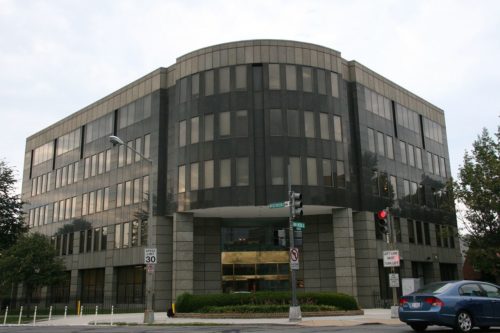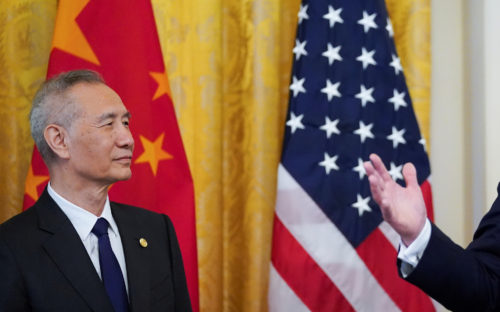Trade war, day 27: Blackmail and 25 percent tariffs


The glimmer of hope didn’t last long. Yesterday — day 26 of the U.S. China trade war — Bloomberg reported that representatives of U.S. Treasury Secretary Steven Mnuchin and Chinese Vice Premier Liu He were talking privately, in hopes of re-engaging in trade negotiations.
But “President Donald Trump’s officials are considering more than doubling planned tariffs on $200 billion in Chinese imports,” Bloomberg then reported (paywall) before day 26 was even over.
On day 5 of the trade war, the escalation to planned taxes on $200 billion in Chinese imports was announced to be at a 10 percent level. Now the tax level reportedly under consideration is 25 percent.
- Private talks continue, Bloomberg indicates, but the conciliatory tone of Mnuchin is clearly not shared by other top Trump officials. (This much we knew already when a shouting match between Mnuchin and Peter “Death by China” Navarro was reported back in May.)
- Mnuchin also may partially support the escalation, however, because he had told media in past weeks that he was personally watching the value of the Chinese yuan, which could be — but has not yet been — manipulated by Beijing to be artificially cheap to cushion the damage of tariffs to Chinese exports.
- The yuan has devalued on its own, but not because of manipulation to the extent of it being artificially cheap: “Prior to the imposition of tariffs, as the dollar was rising, China appeared to be keeping its currency above the level predicted by the [market]. But since the trade war started in earnest, it has let the yuan drop rapidly closer to the implied value,” Bloomberg writes (paywall).
- That change in currency value has nonetheless allowed China to maintain demand for its exports, Quartz writes, even though the PMI, an important measure of manufacturing activity, has fallen to a five-month low.
Mnuchin and other top Trump officials may well have concluded that 10 percent tariffs just weren’t enough of a threat to the Chinese economy.
China called the latest escalation “blackmail,” AFP reports, with Chinese foreign ministry spokesman Geng Shuang emphasizing, “If the U.S. takes measures to further escalate this situation, we will surely take counter-measures to firmly uphold our legitimate rights and interests.” Here’s what China is doing in the meantime:
- “China plans to make it easier for foreign buyers to take strategic stakes in companies listed on domestic exchanges, a step that stands to address some of the complaints levied by the U.S. and other trading partners that its markets are too closed,” according to Bloomberg (paywall).
- Wang Qishan, Xi Jinping’s right-hand man and a well-known Yankee-whisperer, was deployed in May to “rebuff U.S. criticism of Beijing’s industrial policies, expounding on what he called American ignorance of Chinese history” to a group of American businessmen, the Wall Street Journal reports (paywall). To the businessmen, “Wang said his job as vice president is to do whatever President Xi wants him to do,” so he could play a role in trade negotiations going forward.
- “China is consulting businesspeople and think tanks at home and abroad as it considers whether to adapt its strategy in the trade war,” the South China Morning Post reports. Chinese government advisers “said that Beijing was trying to assess the impact of the trade row and political sentiment in Washington, and that it was exploring the possibility of restarting talks — although the time was ‘not ripe right now.’”
- A coordinated propaganda push to communicate “that China isn’t actually that innovative, that it does not pose a threat to the U.S., [and] that concerns of the U.S. and others are based on their own misunderstanding” is forming, according to Matt Schrader, editor of the China Brief at the Georgetown Foundation.
Previously in The China Project’s trade war coverage:






